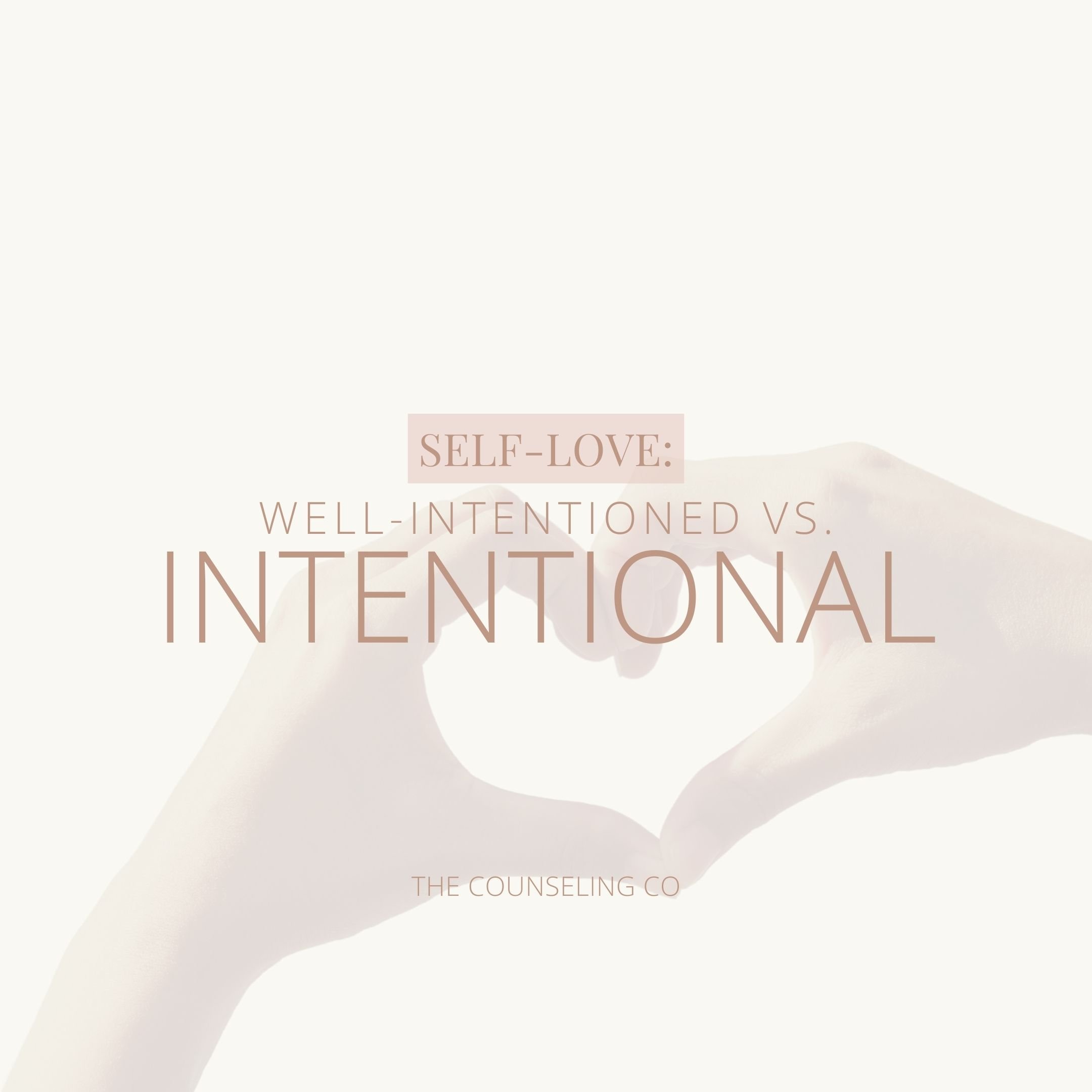
Turning Well-Intentioned Self Love into Intentional Self Love
The concept of self-love has wildly evolved. This phrase can be viewed as honoring your emotions, avoiding conflict, taking care of your health, putting your needs above others, treating yourself any chance you get, etc. None of these are inherently good or bad, but I want to focus on an overall balance of the concept. Webster’s Dictionary has multiple definitions for the phrase, but the one that resonates with me most is, “proper regard for, and attention to, one's well-being.” To truly focus on true, overall well-being, will require discomfort at times, and possibly making shifts in various areas. Now, let’s dig into what this looks like and how self-love can become a more regular and balanced practice in your life.

Identifying Red Flags in Your Relationship
When we struggle to effectively communicate with our partners it can be discouraging, exhausting, lonely, and the perfect environment for resentment to enter the relationship. Luckily, John and Julie Gottman, two of my own personal favorite researchers and therapists in the field, have conducted over 40 years of research on couples. I’ll review some of their research findings and provide information about how we can improve connections and communication with your partner.

Understanding Your Attachment Style
Have you ever noticed patterns in your dating life that start to feel… eerie? You may be dating people who are radically different from your last partner on paper, but the same issues or patterns seem to present as time goes on. It can be frustrating and confusing, and can often lead people to feel defeated while dating. So, let’s talk all things attachment and how your attachment style (and your partner’s) may be impacting you in ways you may not even expect.

Appreciating the Inconvenience of Compromise
In any healthy relationship, compromise is necessary. We have to be willing to “inconvenience” ourselves at times because we value the relationship over “winning” or getting our way. That being said, I believe there is a difference between compromise and sacrifice. To me, compromise means both parties are giving something up, whereas sacrifice means one person is giving something up. Feelings of resentment can show up when there is an imbalance and one person feels like they are sacrificing all the time, and there’s really no compromise happening. If this is you - how might you be able to communicate your feelings with the other person?

Friendships In Adulthood
Friendships are such unique relationships that fill space in our lives. So– how do we navigate friendships in adulthood, especially when life continues to throw changing dynamics into the mix?

